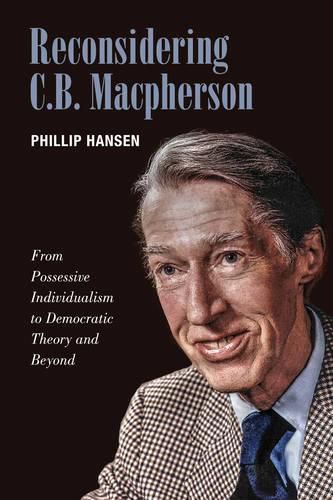Readings Newsletter
Become a Readings Member to make your shopping experience even easier.
Sign in or sign up for free!
You’re not far away from qualifying for FREE standard shipping within Australia
You’ve qualified for FREE standard shipping within Australia
The cart is loading…






C.B. Macpherson occupies an ambiguous place in contemporary political thought. Though his work is well known, it remains on the margins of current democratic theory. That marginalization, Phillip Hansen argues, comes from our failure to appreciate the underlying philosophical dimension of Macpherson’s work.
Identifying and exploring Macpherson’s systematic critique of the liberal claim that the individual is the proprietor of his own person or capacities, owing nothing to society for them, Reconsidering C.B. Macpherson highlights his affinities to Herbert Marcuse, Max Horkheimer, and the Frankfurt School.
This stimulating reappraisal illustrates the importance of Macpherson’s classic books, including The Political Theory of Possessive Individualism and Democratic Theory, and demonstrates how much his work has to offer to the future of political and social thought.
$9.00 standard shipping within Australia
FREE standard shipping within Australia for orders over $100.00
Express & International shipping calculated at checkout
C.B. Macpherson occupies an ambiguous place in contemporary political thought. Though his work is well known, it remains on the margins of current democratic theory. That marginalization, Phillip Hansen argues, comes from our failure to appreciate the underlying philosophical dimension of Macpherson’s work.
Identifying and exploring Macpherson’s systematic critique of the liberal claim that the individual is the proprietor of his own person or capacities, owing nothing to society for them, Reconsidering C.B. Macpherson highlights his affinities to Herbert Marcuse, Max Horkheimer, and the Frankfurt School.
This stimulating reappraisal illustrates the importance of Macpherson’s classic books, including The Political Theory of Possessive Individualism and Democratic Theory, and demonstrates how much his work has to offer to the future of political and social thought.